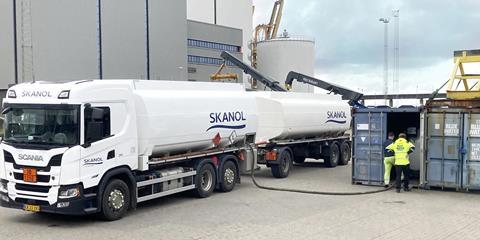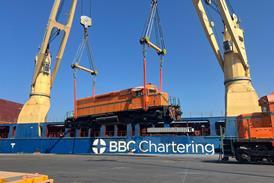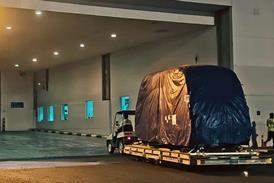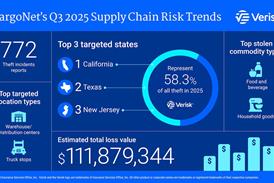Blue Water Shipping is introducing hydrotreated vegetable oil (HVO) diesel as fuel for its port activities at the Danish ports of Esbjerg, Aarhus and Lindø.

The switch to HVO diesel will significantly reduce emissions compared to traditional diesel, said Blue Water, adding that it corresponds to an annual saving of approximately 1,575 tonnes of CO2 from the company’s total direct emissions according to 2024 figures.
The initiative covers close to 600,000 litres of diesel per year for equipment such as forklift trucks, reachstackers and terminal tractors used for both daily operations as well as heavy lift operations, such as handling components for the wind energy industry.
“We see a market advantage in the availability of HVO, which enables us to take a significant step towards more sustainable port operations,” said Søren N. Thomsen, ceo of Blue Water. “This investment reduces our environmental footprint and strengthens our position as a responsible and forward-looking logistics partner.”
With the implementation of HVO diesel, Blue Water has the potential to reduce emissions by 37.8 percent annually, based on the CO2 accounts for 2024, aligning with its goal of reducing scope 1 and 2 emissions by 42 percent by 2030.
The roll-out of HVO beyond its port sites in Denmark is also on the cards: “The future of the company’s use of HVO depends largely on market availability, which fortunately has improved significantly this year,” said Thomsen. “Interest in more responsible fuels is growing, and so is supply. We naturally hope to expand the use of HVO to other parts of the business. For us, it’s about acting when opportunities arise.”
The first fuelling with HVO diesel took place at the port of Esbjerg on July 10. Karen Sandrini, ESG and sustainability manager at the port, said that cross-company collaboration such as this is important to “bring about real change”. “We have had a strong partnership with Blue Water for many years, and we are delighted that it is now also making a concrete contribution to reducing CO2 in Esbjerg,” she added.
The port itself has a strong focus on sustainability, aiming to become a climate neutral port. To support that goal, the port has introduced a shore power facility, which means vessels can turn off their generators and run on wind energy while at the port.
Last month, HLPFI reported that Blue Water was consolidating its existing operations in Aarhus with an office building located in the heart of the port.
















